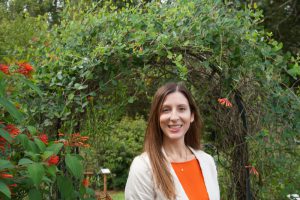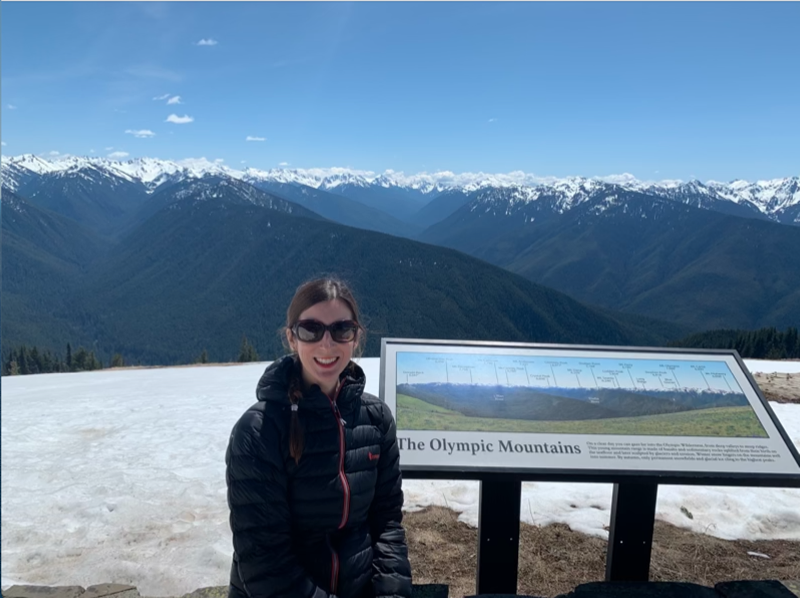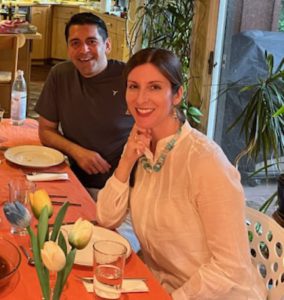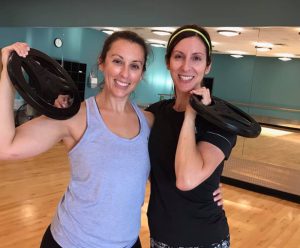 We are happy to welcome Dr. Cora Best to the Discover FSHN Series! Dr. Best is an assistant professor of nutritional sciences at the University of Florida who studies nutritional influences on kidney and musculoskeletal health. Learn about her dedication to understanding how nutrition affects kidney disease as well as her journey to the Food Science and Human Nutrition Department.
We are happy to welcome Dr. Cora Best to the Discover FSHN Series! Dr. Best is an assistant professor of nutritional sciences at the University of Florida who studies nutritional influences on kidney and musculoskeletal health. Learn about her dedication to understanding how nutrition affects kidney disease as well as her journey to the Food Science and Human Nutrition Department.
Tell me about how you became interested in nutrition for kidney disease.
Today, most kidney disease is caused by diabetes and hypertension, and dietitians and nutrition professionals can help prevent and mitigate kidney disease. That aspect of kidney disease appeals to my sense of mission and broad interests in nutrition.
I first became interested in nutrition for kidney disease (renal nutrition) during my medical nutrition therapy (MNT) classes. I was fascinated by the metabolic disturbances in chronic kidney disease (CKD) and their nutritional implications. Recommended MNT for CKD is relatively complex, which also attracted me to the specialty. At that time, I was developing expertise in vitamin D and mineral metabolism through my research, so renal nutrition seemed like an area where I could make a contribution and integrate my clinical and research training.
It is never too late to benefit from adopting a healthier habit.
Then, during my clinical rotations, I recognized knowledge gaps surrounding nutrition recommendations for CKD patients. Furthermore, I encountered misunderstandings about nutrition among patients with CKD and learned that the MNT benefit for CKD is underutilized. Thus, there is a need for both discovery and implementation science in renal nutrition.
When did you develop your interest in musculoskeletal health?
I have been studying vitamin D and minerals for several years, and musculoskeletal outcomes are the most relevant outcomes. I started attending the American Society for Bone and Mineral Research (ASBMR) meeting in the first year of my postdoctoral fellowship because ASBMR is at the forefront of the vitamin D field. The science at ASBMR is excellent, and I love learning about bone biology and metabolic bone disease from expert members.
My experiences at ASBMR convinced me to continue to research nutritional influences on musculoskeletal health. The topic has high relevance given the burden of musculoskeletal disease in the aging population.

How did you combine your studies in nutrition and dietetics?
I entered the field of nutrition through global nutrition. After completing my undergraduate degree, I earned a master’s degree in public health nutrition and then worked for the UN World Food Programme, where my work focused on improving the nutritional value of WFP’s food baskets mainly by increasing micronutrient density. I recognized the value of scientific expertise and wanted to increase my capabilities, so after three years abroad, I returned to the US to continue my education and be closer to my family.
I initiated a 2.5-year program of postbaccalaureate education to prepare to pursue a doctorate. During that time, I worked as the clinical trials coordinator for pediatric weight management at Children’s Mercy Hospital and volunteered as a nutrition educator at the free clinic in Kansas City. I loved those experiences, which influenced my decision to become a PhD, RDN (registered dietitian nutritionist).
From there, I followed a traditional path to my current position. As a PhD trainee in Kimberly O’Brien’s lab at Cornell University, I was able to do clinical research and metabolic research with isotope tracers. I finished a few dietetics courses as a PhD student but had largely fulfilled the dietetics requirements before starting the PhD program. I completed my supervised practice through the Cornell dietetic internship in the final year of my PhD program.
What path did you take to get to UF?

After earning my PhD and becoming an RDN, I did a postdoctoral fellowship at the University of Washington to learn more about mass spectrometry, isotope tracers, kidney disease, and epidemiology. I was co-mentored by a pathologist/clinical chemist (Andy Hoofnagle) and a nephrologist/epidemiologist (Ian de Boer). I chose that postdoc with the intention of subsequently starting my own nutrition research program that focuses on kidney health and combines clinical and metabolic research.
I am thrilled that UF and the FSHN Department gave me the opportunity to realize my goal. To younger readers, I should mention that I have had an amazing journey, but all major life decisions come with opportunity costs. For example, pursuing a PhD and postdoc in my thirties impacted my ability to save for retirement.
Would you share some of the recent projects you are working on?
I am involved in two recently completed clinical trials: (1) a study of clinical and genetic factors that influence the response to vitamin D supplementation, and (2) a stable isotope study of vitamin D metabolism in individuals with and without kidney disease. Within those trials, I have ancillary projects.
I am also writing grant proposals. One aims to support a new research direction testing the effects of a therapeutic diet on bone and mineral metabolism in older adults. I’ve been planning that project for some time, and I’m excited that it will allow me to use my training as a scientist and dietitian. I would be happy to share additional information with students interested in joining my lab.
Tell me about the classes you teach.

I teach the graduate-level course called Proteins and Amino Acids in Human Nutrition that will be offered every other year beginning fall 2023. The course covers all aspects of protein nutrition and metabolism. Students learn the scientific bases for determining dietary protein quality and estimating protein and amino acid requirements in health and disease. I am excited to introduce a new module on nutritional aspects of novel protein sources that are alternatives to animal agriculture.
What do you believe is the most important fact the public should know about renal nutrition?
It is never too late to benefit from adopting a healthier habit. Even if you already have kidney disease, small changes to dietary intake can improve your health and how you feel. There are clinical and community resources to support you, but you may need help finding them. Visit your healthcare provider and ask about diet and nutrition.
What do you like to do in your free time?
I spend most of my time in group fitness classes and dancing.
Interested in learning more about FSHN’s Nutritional Sciences programs? Read more here and here and here!
P.S. The Discover FSHN Series highlights the unique experiences of UF’s Food Science and Human Nutrition students, faculty, staff, and alumni. Want to read more about the amazing work going on in the FSHN department? See our previous features below (click on arrows to expand):
Undergraduate Students:
Shannon Mai, Dietetics
Alex Colon, Dietetics and Jenny Duong, Food Science
Jackie Shannon, Nutritional Sciences
Jennifer Jordan, Food Science
Lily Tucciarone, Dietetics
Tim Cassella, Nutritional Sciences
Graduate Students:
Savanna Curtis, Food Science (M.S.)
Carley Rusch and Matthew Beke, Nutritional Sciences (Ph.D.)
Alexa Hosey, Dietetics (MS/DI)
Vicnie Leandre, Food Science (M.S.)
Rufus Theophilus, Nutritional Sciences (Ph.D.)
Amber Fritsche, Dietetics (MS/DI)
Amy Jones, Food Science (Ph.D.)
Melissa Perez Santana, Food Science (M.S.)
Postdoctoral Associates:
Dr. Cameron Bardsley, Food Safety
Dr. Tautvydas Shuipys, Food Safety
Dr. Felix Jimenez Rondan, Nutritional Sciences
Faculty:
Dr. Naim Montazeri, Food Science/Food Virology
Dr. Jeanette Andrade, Dietetics
Dr. Zhiyong Cheng, Nutritional Sciences
Dr. Juan Andrade Laborde, Global Nutrition
Dr. Razieh Farzad, Food Science
Dr. Beth Gankofskie, Dietetics
Dr. Anne Mathews, Nutritional Sciences
Dr. Diana Taft, Nutritional Sciences
Dr. Boce Zhang, Food Science/Food Microbiology
Staff:
Sharyn Passeretti, Lab Specialist
Herschel Johnson, Manager of Student Services
Brandy Johnson, Administrative Assistant
Kohrine Counts Hazim, Dietetics Program Coordinator
Alumni:
Dr. Rebecca Gould, Dietetics, Postdoctoral Research
Dr. Becca Solch, Nutritional Sciences, Postdoctoral Research
Hannah Cooper, Dietetics, Private Practice
Dr. Richie Li, Food Science, Product Development
Doctor Brian Barrow, Nutritional Sciences, Medicine/Physician
Luciano Junoy, Food Science, Product Development
Carlin Dixon, Dietetics and Professional Dance
P.P.S. Learn more about FSHN’s renowned programs below!
Undergraduate Programs:
Dietetics
Food Science
Nutritional Sciences
Graduate Programs:
M.S. Dietetic Internship Program
M.S. Food Science and Human Nutrition
Ph.D. Food Science
Ph.D. Nutritional Sciences
 3
3
